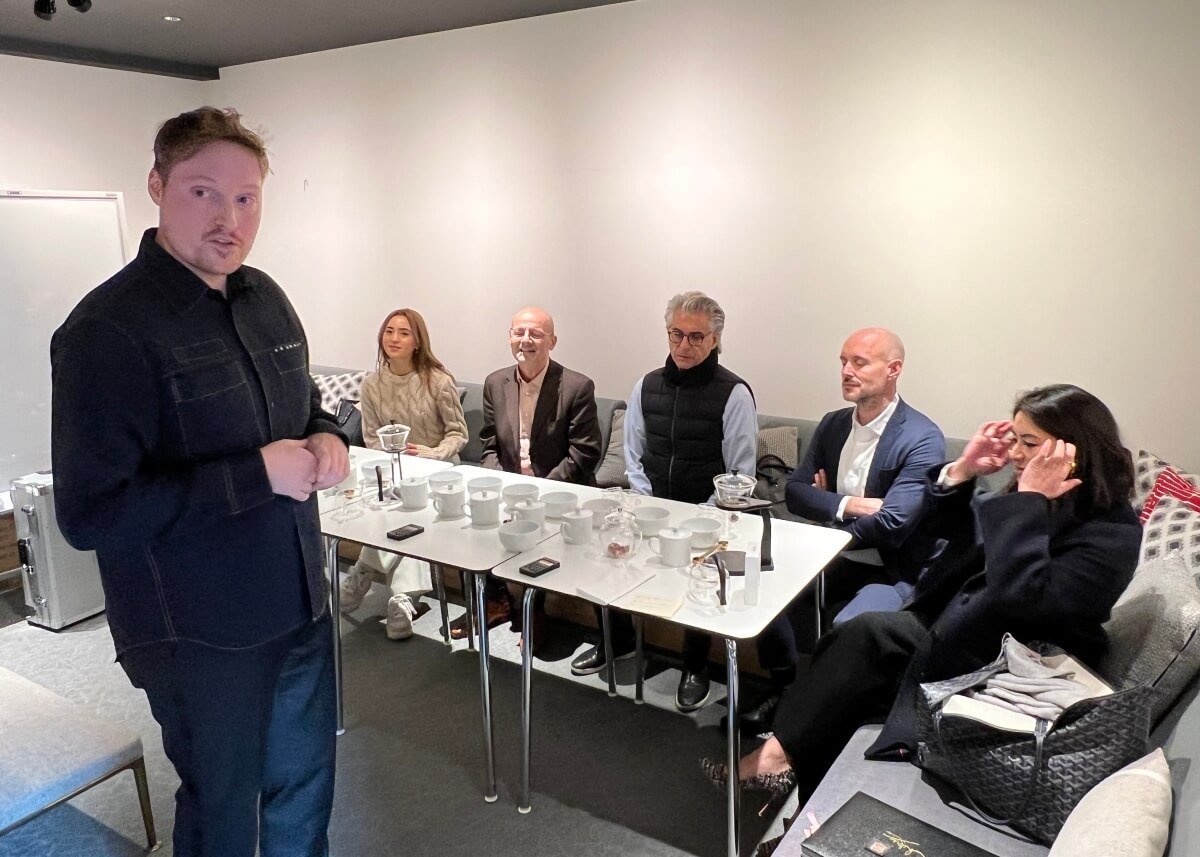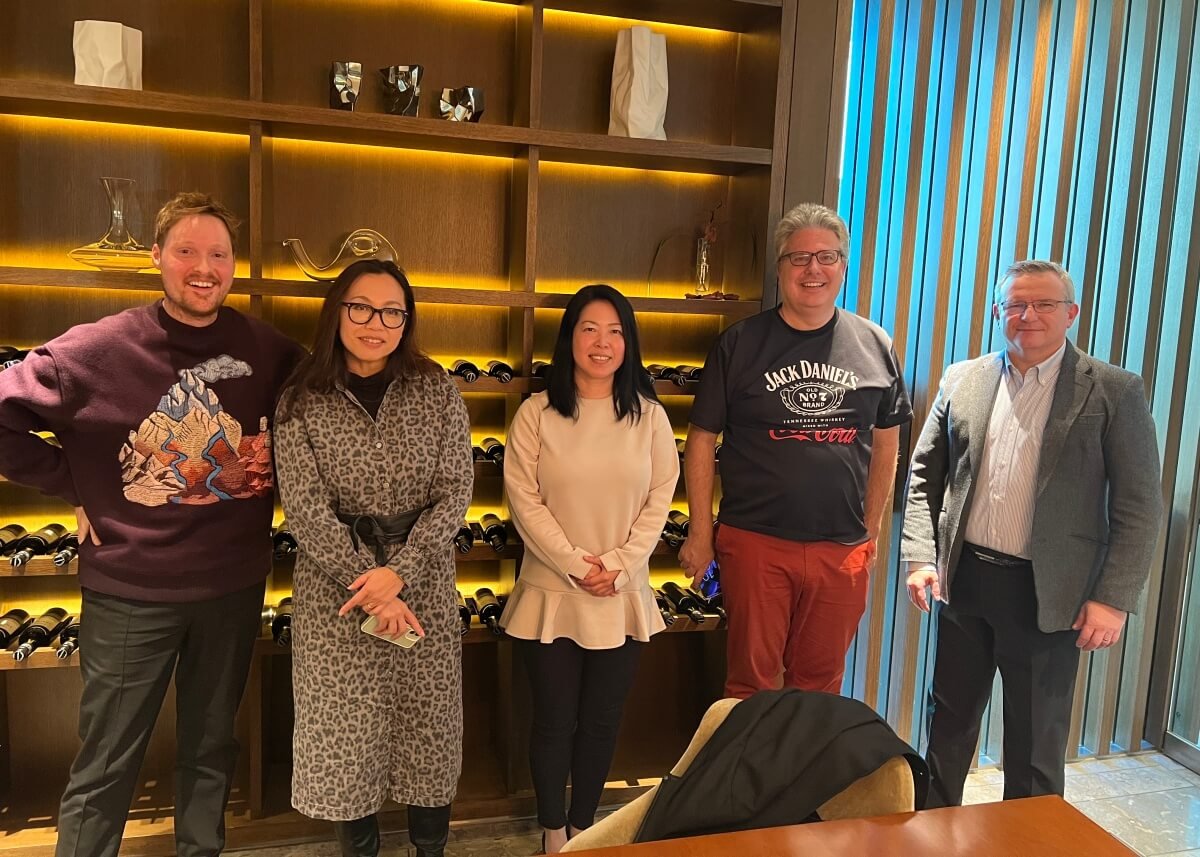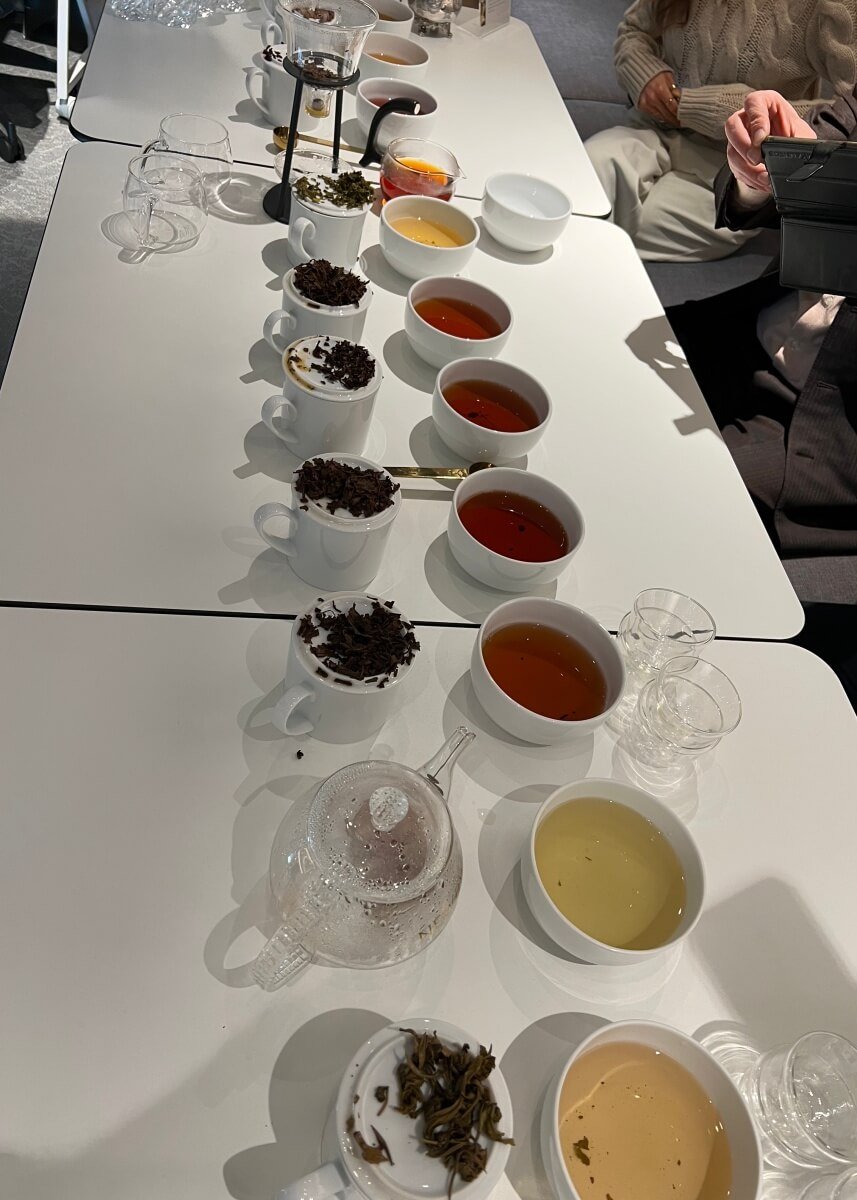The Delphi Roar: January 12, 2025
Dear Members and Advisors,
I am very pleased to welcome Kaori Ikeda, the GM of high-end Swiss cosmetic firm La Prairie. She is truly bi-cultural, educated at top French schools, and I look forward to practicing my French with her! She was our 7th member in 2024, adding to the CEOs of Keen, Port Cities, AB InBev, the VP of IMG, the CEOs of EngagedSquared and Ultra Tendency, and a partner at McKinsey, making for a year of expansion at Delphi.
On this January 6, which is called “Blue Monday” and considered the most depressing day of the year as everyone goes back to work, I am sitting in my mother’s sheep farm in Wales, lashed with rain and snow, and re-learning the lesson that the UK is best visited in the long, bright days of summer…
Everything is grim here, with rising prices, poor GDP forecasts, lack of trust in the new Labour government, and of course the traditional winter transport chaos.
The Brits generally love America far more than Europe, but they are quite nervous about the Trump administration’s attitude towards Britain. They feel Trump has no special friendship towards the UK, and that the love and longing are one-way.
Delphi will be, to a small extent, involved in the Institute of Directors (the industry group for small & medium companies in the UK) efforts to market British services in Japan at the Osaka Expo! Interestingly, one of the organizers on the UK side told us how impatient he was with the narrow focus on the City of London (the financial hub of the UK) and how he wants a more diverse range of companies to “spread their wings” and adventure into Japan. Actually, we introduced Delphi member David Syrad to the IoD, and he will be active in this regard as well.
Currently, the plan is for a July cocktail.
Seen in the Network














Upcoming Events
January ‘25 Cocktails
Join us for a night of cordial networking at the Tokyo Andaz Hotel’s stunning 51st Floor Tavern Bar.
Heard in the Network
“Japan is being viewed as an investment opportunity by my global HQ after many years of being ignored. It’s an exciting time to be a country manager, but I sense the growth they require of me will not be easy to obtain!”
“ou often hear that the Japanese value deep relationships, but in fact, they always behave in a very transactional way towards me and don’t seem remotely interested in getting to know me better. I am very willing, as I am a long-term foreigner in Japan and the advantages are obvious. I sometimes wonder what’s wrong with me!”
“One of my responsibilities is to roll out new stores. How I wish now I had quickly bought up the cheap retail space during Covid, instead of now when prices are shooting up! Further on that point, I feel I need deep real estate expertise to supervise the roll-out of my stores, which I currently do not possess.”
“The problem about first becoming GM as a foreigner is that the dynamics of the team you are leading are quite opaque by Western standards. For a long time, I relied on my PA for all the gossip about who was doing what, and what the staff were moaning about. I know this was amateurish, and in the end, I brought in a specialist in transforming and improving culture, who worked out surprisingly well.”
“Luxury is going through an interesting moment. Some analysts believe that Japan cannot produce luxury, that they somehow don’t get the creativity, extravagance, and sparkle that the luxury business requires. They refer to the Japanese as “beige,” which is actually a huge insult! But another faction points out that Japan is steeped in a sort of “luxurious atmosphere” of good service, refinement, sophistication, style, and extremely high quality. This school of thought believes that European luxury is fake, overpriced, and lacking in authenticity.”
“The careers of CMs are being cut short increasingly because experience has less value as new technologies accelerate. In the past, 10 or 20 years of business experience counted for something. But if business has been revolutionized by DX, GX, & AI, you want CMs experienced primarily in those areas, so there is no “cost” to younger managers who are more familiar with these concepts than their older peers. This is not unusual. In times of dramatic change, experience in the preceding (obsolete) environment loses its value quickly.”
“When foreign companies market to Japanese with their simplistic and narcissistic advertisements, they fail to realize that the Japanese have the best “bullshit detectors” in the universe.”
“Many years ago, when my daughters were young, I opened stock savings accounts for them to pay for their college education. I now have $100,000 in each girl’s account. I thought I was doing pretty well until I realized that $100,000 these days pays for just one year’s tuition.”
“After the Thatcher and Reagan revolutions, the middle classes benefited initially through real estate appreciation, stock market booms, and cheap shares from government privatizations. Then, the upper middle class (i.e., lawyers, bankers, consultants) separated from the middle class, getting richer, while middle-class incomes got stuck after the 2008 Crash. But now, my upper middle-class friends in banking and law complain that they are being left behind, as money continues to flow inexorably upwards, into the pockets of the super-rich. They now find that luxury destinations are increasingly priced for the “super-rich,” no longer just for the “rich” like themselves. There is no increase in quality, either!”
“One of the trends I notice in Europe is that pricing is very annoying or, you might say, sophisticated. You can opt for dozens of options based on your budget, e.g., when flying with low-cost airlines. In a sense, this gives the consumer much more flexibility. The downside is non-stop pop-ups offering very finely sliced levels of service, which is confusing and distracting. In Japan, the pricing is much simpler, much easier to use, but probably less effective from a profit point of view.”
“As a foreign GM who can’t speak the language, I must admit I think about the value I can bring to my role every day. As far as I can understand so far, I need to empower the local team and smooth the way for their initiatives with HQ.”
“We have a weird variant of power harassment in our company. My company sells high-end cosmetics, and each counter in a department store is overseen by an older lady, maybe 10-15 years older than the women actually engaged with staff. After surveying our staff, we found significant conflict between the two groups, and we are now rolling out a time-consuming investigation into what is going on. Frankly, this is not something I want to be focusing on as I start my new job as country manager.”
“I think we are all, as GMs, struggling with the “buying” journey of the consumer. How does he want to experience the journey? What is the ratio of online to offline? What is unique about each of them?”
“We run a fast-food franchise from the US, which boomed during Covid. Unfortunately, the boom is fading, and it looks like my last big job before going back to the US is to shrink the business. We are going to focus on closing down the stores we own directly, as the franchisees are too well-protected legally.”
“I am often frustrated by my HQ shipping boxes of products to me which are covered in scratches. Although the content is fine, they don’t understand that to charge such a high premium in Japan, everything has to be perfect, even things which seem non-essential. But you prove your commitment in the Japan market by your attention to detail.”
“I enjoy the Roar because you (Dan) seem able to make CMs and members open up to you. The comments are always interesting and sometimes wild! For example, the idea that an abacus is superior to Excel is obviously wrong from an efficiency point of view. I think what the speaker was trying to say is that technology is a commercial way of seeing the world, with a strong agenda for extracting profit from it. In other words, technology wants to coerce us to behave in such a way that it benefits tech companies. To convince us, many claims about efficiency are made, but these are always overstated in my experience. The actual cost savings from DX are simply to transfer the burden of work from the companies to the consumers, for example, when consumers have to book trips online themselves.”
“When I attended my state university in the US, I paid $6,000. Now the price is $60,000. The world has clearly gone crazy.”
“Japan is an island, and so is Ireland. Interestingly, Ireland was colonized by the Vikings, which is obviously not a nice thing to happen. But the Vikings incorporated Ireland into their worldwide trading empire, which economically and culturally benefited Ireland, or at least certain Irish. Japan kept its independence but as a result also remained isolated for hundreds of years. Still, Japan managed to create a wonderfully sophisticated, peaceful, and literate civilization without the benefit of this “globalization.” In that sense, Japan’s experience contradicts the oft-cited arguments that isolation is always a negative.”
“I run a tech start-up, and I have recently realized that my company will be completely obsolete in a few years due to the impact of AI and cost-free coding. So my plan for 2025 is to find a completely new business model! It is challenging, but we in tech often have this issue of very rapid change, so it’s not completely unexpected.”

